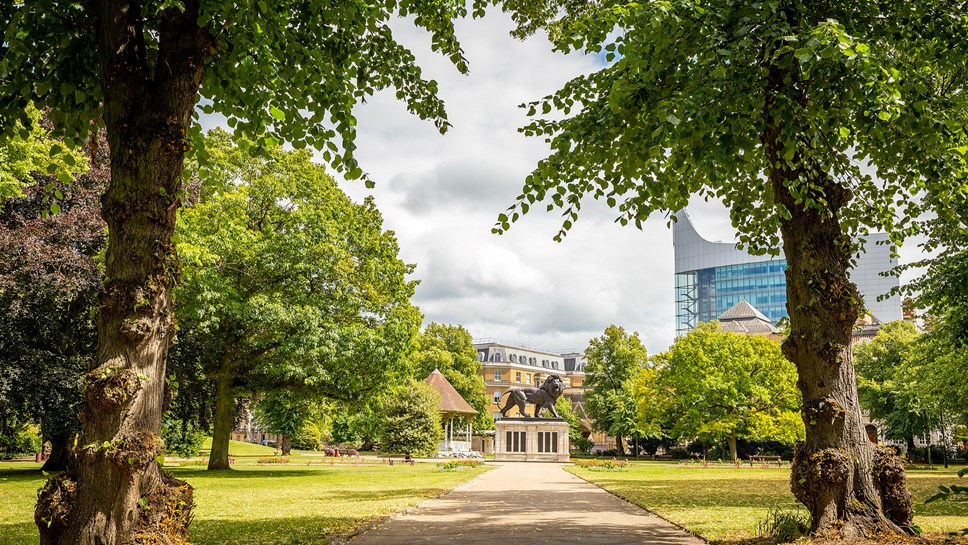
Five-year anniversary of Reading declaring climate emergency
- Good progress made by the borough and Council but still much more to be done
- Call for all residents, communities, organisations and businesses to pull together to achieve net zero Reading by 2030
This week marks five years since Reading Borough Council joined other local authorities across the country in declaring a climate emergency.
The Council is recognising the anniversary by celebrating what has already been achieved locally and focussing on the challenges ahead.
Reading councillors declared a climate emergency at a Full Council meeting on 26 February 2019, stating that more concerted and urgent action is needed to avoid the most dangerous impacts of a changing climate and committing the Council to play as full a role as possible.
The Council has been working with the Reading Climate Change Partnership (RCCP) and other local organisations to achieve a net zero carbon Reading by 2030. And the Council is also committed to reducing its own carbon footprint.
Achievements so far have included:
- 51% reduction in the borough’s carbon emissions since 2005 – the eighth largest reduction across 374 local authority areas in the UK
- Reading leads all other Berkshire local authority areas for emission reductions and is ahead of the UK average by 12 percentage points
- 74% reduction in the Council’s own carbon emissions in 14 years
- Target to reduce the Council’s use of fossil fuels by 50% met two years ahead of schedule
- 68% reduction in emissions from waste since 2015/16, largely due to a reduction of rubbish going to landfill
- Reading has featured on the Carbon Disclosure Project’s (CDP) global environmental A list, for three successive years, with only 25 other UK councils appearing in 2023
Reading borough has been able to make good progress thanks to the work of partners, including the University of Reading, Reading FC, Royal Berkshire Hospital NHS Foundation Trust and Reading Climate Action Network, and of course the efforts of residents.
The Council is planning further events to engage more local businesses and communities in the drive to achieve Reading net zero by 2030.
Measures taken by the Council to reduce its own emissions include the installation of heat pumps and solar panels in its two new leisure centres in Palmer Park and Rivermead, increasing the number of electric vehicles in its fleet and installing solar panels and energy efficient systems in schools.
The Council and the RCCP are now reviewing the Climate Change Strategy for 2025-30 which will take the borough up to the target date for a net zero and climate resilient town.
Cllr John Ennis, Lead Councillor for Climate Strategy and Transport, said:
“Reading Council has a good track record when it comes to the environment and climate emergency. We signed up to the Nottingham Declaration on Climate Change in 2006 and we were one of the first councils to produce a detailed Climate Action Plan.
“Shortly after declaring a climate emergency in 2019, the Council changed its constitution to ensure tackling climate change ran through all areas of the authority’s work. This is just as evident today, particularly in critical areas such as Reading’s transport and air quality plans.
“We have made good progress with the help and support of our partners, communities and residents.
“We are now entering a critical period of time, not only for our borough but for our future on the planet.
“Last year was the warmest on record, this February is likely to be one of the wettest on record, July 2022 saw UK temperatures exceed 40 degrees for the first time and Reading’s all time temperature record was also broken.
“I would urge everyone in Reading to do what they can to help the town become net zero by 2030.
“It can seem like a daunting task, but if we all commit to taking action on climate change, together we can make a big difference.”
The Reading Climate Action Network (RCAN) website has some great ideas and information about ways individuals, businesses, organisations and schools can help Reading reach net zero by 2030. Visit: https://readingcan.org.uk/.
